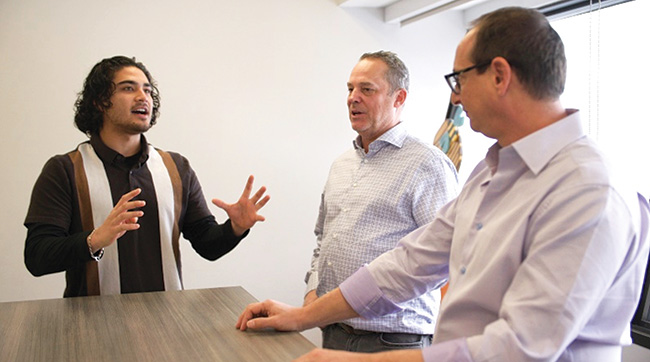The Employee Retention Credit can be a valuable resource for eligible waste and recycling companies that kept employees on payroll during the pandemic. Despite the common myths, many businesses in the sector may still be eligible for the ERC.
By Howard Makler
During the COVID-19 pandemic, many companies in the solid waste and recycling industry were adversely affected by a shifting mix of waste volumes and revenue streams. For some small businesses in the industry, the Employee Retention Credit (ERC) has been a valuable lifeline. Yet many still have not heard about the credit or think it is too complicated to make it worth their while to check if they may qualify.
Make no mistake, navigating the 200+ pages of the tax code for this program is complex, and not every business qualifies. No one should tell you that it is easy or a guaranteed tax credit. However, doing your homework to determine if you qualify can potentially mean a significant refund for your company: up to $26,000 per employee, which can provide much-needed money to invest in your business.

To be clear, the ERC is different than the Paycheck Protection Program (PPP). The ERC is not a loan or a government handout. It is a refundable tax credit, meaning the IRS refunds eligible businesses a percentage of the money they have already paid in payroll taxes.
While this is not a substitute for any tax or legal advice, here are some common myths that my firm of independent tax professionals has addressed.

Myth #1
Waste management and recycling services were considered “essential” during the pandemic so they cannot claim any funds since they could remain open. While it is true that most waste management and recycling companies were able to continue operating during the pandemic, this does not necessarily mean that they are ineligible for the ERC. The IRS has kept the definition of a government shutdown fairly open, allowing room for varying situations. Depending on a business’ operations during COVID-19, it may qualify for the ERC for partially suspended operations. However, a word of caution here: many employers were subject to government orders requiring them to modify their operations, such as social distancing or the sanitizing of equipment or furnishings. For a company to qualify for an ERC, the IRS requires that a government order caused more than a nominal effect on operations.
Myth #2
Businesses cannot qualify if they received a PPP loan. Originally, a business had to choose between the two, and most opted for the PPP loan, but this is no longer the case. It is possible to apply for the ERC, even if you received PPP funds. You will want to check with a qualified professional to determine if your business may be eligible.
Myth #3
Companies that were affected by supply chain issues can automatically claim this credit. Many recycling and waste management companies were impacted by supply chain disruptions over the last three years that slowed access to everything from electrical components for line equipment to new truck orders. However, the IRS has said that in order for a business to claim the ERC, it must have been unable to obtain critical goods or materials from alternative suppliers, forcing its own operations to be fully or partially suspended. This means that you will need to go beyond just demonstrating that your business experienced supply chain issues.
Myth #4
All businesses that help claim the ERC use similar processes. If a company makes false claims that you will qualify before careful evaluation or makes promises that seem too good to be true, think twice about working with them. Choose a provider that pledges to carefully follow the law, applies a rigorous process, and works with knowledgeable independent tax experts to evaluate whether your business is eligible to receive an ERC refund.

Do Your Homework
The ERC can be a valuable resource for eligible waste and recycling companies that kept employees on payroll during the pandemic. Despite the common myths, many businesses in the sector may still be eligible for the ERC. It is important to do your homework on companies offering ERC assistance to make sure they are ethical, skilled, responsible and trusted partners. With those parameters in place, this program can be a fantastic benefit for businesses that qualify. | WA
Howard Makler is the co-founder and CEO of Innovation Refunds, a dedicated team of champions for small businesses who, along with a network of independent tax attorneys, CPAs, and tax professionals, have helped more than 13,000 companies claim billions of dollars in ERC refunds. Innovation Refunds’ value is derived from its extended network of enterprise partners, financial institutions, cutting-edge technology resources, and trusted advisors. For more information, visit www.innovationrefunds.com.
